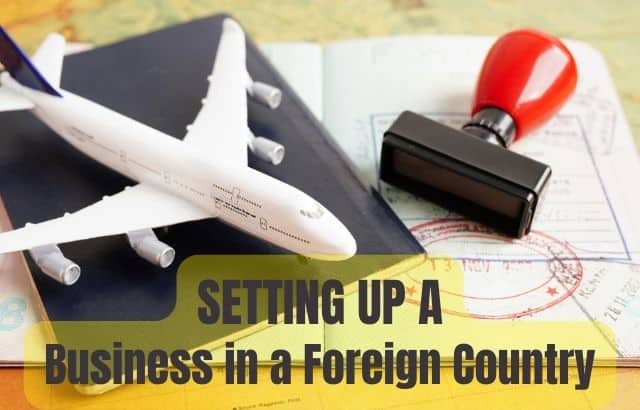If you are planning to launch a new business in Poland you need to know about the market. Each country is different and so does the market existing there. There are many hiccups, challenges, and obstructions that you will have to encounter on a daily and monthly basis till your company becomes a brand to reckon with.
Astro Strategist cum Business Astrologer Hirav Shah says, “Starting a business in another country can be financially and emotionally rewarding if you do your homework, have realistic expectations for success, and avoid or compensate for the potential obstacles that inevitably accompany a new venture. All new businesses are inherently risky. In the United States, perhaps one of the most friendly climes in the world for entrepreneurship, almost one-half of new business operations fail by the end of the fourth year, and one in four fail by the end of the first year.”
“While there are no statistics indicating the failure rate of new enterprises by country, you should assume that the difficulty of achieving success is as least as hard in a foreign land as here in the United States. However, there are a number of tips and techniques you can follow to help better the odds of success.”
Table of Contents
Setting up a Business in a Foreign Country
1. Setting Up a Business in a Foreign Country -Identify and Quantify Expectations

Begin your effort by looking for parallels to the type of markets you’re already serving in the United States or elsewhere. Ideally, select countries or regions where you can provide your products or services without making too many modifications to fit local standards or laws.
A tentative plan to move forward should be the outcome of your planning and due diligence, with answers to the following questions:
- Why Are You Undertaking This Operation?
- What Are You Going to Do in the New Country?
- Where Will Your Business Be Physically Located?
- Who Needs to Be Involved in the Planning and Execution of the New Venture?
- When Do You Want the New Business to Be Established?
- How Are You Going to Proceed to Meet Your Objectives?
Planning and execution go hand-in-hand; while you will inevitably overlook some element, your success is directly dependent upon the level of preparation you do before taking the first step.
It generally makes sense to start your operations on a small scale with the intention of expanding later on. For example, you might pick only one or two products to offer your foreign customers initially, or outsource manufacturing with the ability to move it in-house as you gain knowledge. Maintaining optimum flexibility during the first days makes sense allowing you to test the waters of the market before dedicating too many resources.
2. Understand the Environment before Setting Up a Business in a Foreign Country

While some experts claim that “starting a business overseas might actually be much easier, less risky, and more economically sound than setting up a business in your home country,” it is far better to expect problems than assume everything will go as planned. There are four major areas to consider when setting up shop in a new country:
Regulatory Climate
Every country has its own version of immigration rules, financial regulation, taxation, and employment law. If your business requires the import or export of goods, you will need to check out any restrictions on the products being moved and the costs associated with their movement. Property rights generally vary by country, so don’t assume that your investment is safe based upon U.S. standards. Confiscation of property is not uncommon, particularly in emerging industrialized countries.
Political Stability
If you plan to begin your new business in a country that is rapidly evolving politically or economically, limit your financial exposure and personal risk until you are confident that you understand the environment and can appropriately cope with the potential changes.
Economic Potential
As a result of the worldwide recession due to COVID, some countries are experiencing draconian tax burden and negative growth, most likely leading to social unrest and possible attacks on foreign-owned businesses. At the same time, other countries have rolled out the red carpet to new businesses as the key to a brighter economic future. Tax incentives have increased while regulatory bureaucracy has been streamlined and eliminated. Locating in one of the latter countries can benefit the populace as well as the new owners. If you plan to sell your products or services within the country, you should understand the general spending habits of the populace, as well as the existing competitive business environment. Established businesses are likely to react when you begin to affect their market shares.
Cultural Differences
In addition to a possible language barrier, there are a whole host of cultural behaviors, attitudes, nuances, and sensitivities that can affect your business. In some countries, religious customs may affect how and when business is conducted.
3. Determine Your Budget when Setting Up a Business in a Foreign Country

While businesses fail for a variety of reasons, one of the more common causes is insufficient startup capital, generally stemming from the business owners’ optimistic projections of revenues and profits. Starting a new business is difficult under the best circumstances, but even more so when operations are remote and the business environment uncertain.
When making your projections, be conservative on estimating revenues and liberal when estimating expenses. Anticipate that your cash-flow break-even (the point when the money coming in meets or exceeds the money going out) will be longer than you initially expect.
Any review of public projects indicates that humans are woefully bad when estimating project costs or timelines:
Private projects are no more likely to be on schedule and budget than public projects – just less publicized. Use a 50% to 100% “fudge factor” in your number for overseas projects and new businesses to ensure you have enough capital to ride out any problems or delays.
4. Resolve Logistics Issues Before Setting Up Shop

Many countries lack the infrastructure that exists in industrialized counties. Even where the movement of goods is not physically restricted, there may be regulations that affect the free flow of products within and outside the country, as well as fees, duties, and export taxes.
In some countries, the payment of bribes to local government officials is a normal business practice. If you will be setting up a business in a country where “gifts” and bribes are the normal way of doing business, you must retain legal advice about what you can and cannot do before starting operations.
5. Setting Up a Business in a Foreign Country just go and Find a Local Agent

A local agent, or sometimes an attorney or accountant experienced in international law, can be invaluable when establishing a physical presence in a new country. You don’t want to have your products seized or your operations shut down due to some miscommunication or misunderstanding with the local government officials.
6. Establish an International Banking Relationship
If you anticipate exporting or importing goods from or to a country, be aware of currency differences, and take measures to eliminate exchange risk where possible. This requires that you remain aware of constantly changing exchange rates. The foreign exchange market can be extremely volatile, and if you don’t pay attention, your revenues can quickly evaporate as money is converted between currencies.
Research your international money transfer options. Unless you are in need of some specialized service, you should not normally rely on your bank to send and receive money across borders. In many cases, you are charged exorbitant fees and have to wait several days for the money to clear and become available in your account.
Setting Up a Business in a Foreign Country – Frequently Asked Questions

What are some proven methods to accelerate business growth?
Answer: Implementing effective marketing strategies, optimizing operational processes, and fostering innovation are proven methods to accelerate business growth.
How can I effectively research the market in a foreign country?
Answer: Conduct thorough market research through surveys, focus groups, and local industry reports. Leverage local expertise to understand cultural nuances and consumer behavior.
What legal considerations should I be aware of?
Answer: Understand local business laws, regulations, and tax requirements. Consulting with a local legal expert can help ensure compliance and avoid legal pitfalls.
How important is understanding the local culture?
Answer: Understanding the local culture is crucial for building relationships, marketing effectively, and tailoring products or services to meet local needs.
What strategies can help in building a local network?
Answer: Attend local business events, join industry associations, and engage with the local community. Building a robust local network can open doors to new opportunities and partnerships.
How can I manage operational challenges in a foreign country?
Answer: Develop a clear operational plan, invest in local talent, and ensure effective communication channels. Adapt your operations to the local business environment to enhance efficiency and effectiveness.
Strategic Wisdom: Hirav Shah’s Approach to Success

1. “Success in unfamiliar territories comes from adaptability and local insights.”
Explanations: Adapting to local market conditions and gaining insights into consumer behavior are key to success.
Strategy: Conduct comprehensive market research and understand cultural differences.
Execution: Implement strategies based on local insights and continuously adapt to market changes.
2. “Navigating foreign markets requires strategic foresight and resilience.”
Explanations: Strategic planning and resilience are essential to overcome challenges in foreign markets.
Strategy: Develop a robust business plan and anticipate potential obstacles.
Execution: Remain flexible and resilient in executing your business strategy.
3. “Local partnerships are the bridge to business success.”
Explanations: Building local partnerships can facilitate smoother market entry and growth.
Strategy: Identify and collaborate with local businesses and stakeholders.
Execution: Foster strong relationships through regular communication and mutual benefits.
4. “Understanding cultural nuances unlocks market potential.”
Explanations: Cultural awareness helps tailor your approach to meet local demands effectively.
Strategy: Invest time in learning about the local culture and consumer preferences.
Execution: Integrate cultural insights into your marketing and business operations.
5. “Compliance with local laws is the foundation of sustainable growth.”
Explanations: Adhering to local regulations ensures long-term business sustainability.
Strategy: Engage legal experts to navigate local laws and regulations.
Execution: Implement compliance measures and regularly review legal requirements.
Hirav Shah’s Final Word

When entering a foreign business market, it is important to have an exit strategy in place and be aware of potential indicators that may require you to retreat. In the event that things do not go as planned, it is crucial to salvage as much of your investment as possible. This involves identifying any restrictions on selling or valuing your business, as well as potential buyers in case of unsuccessful outcomes or insurmountable problems. Starting a business in a new country can be highly profitable for all parties involved, as long as it is approached with careful consideration and measures taken to protect against potential negative outcomes.
Hirav Shah, a renowned business strategist, emphasizes the importance of learning from those who have successfully started businesses in other countries. He believes that expanding into new markets or accessing new talent pools can be a strategic move for businesses. However, he also highlights the need for thorough planning and a deep understanding of the local culture, laws, and logistical challenges in order to ensure success.











